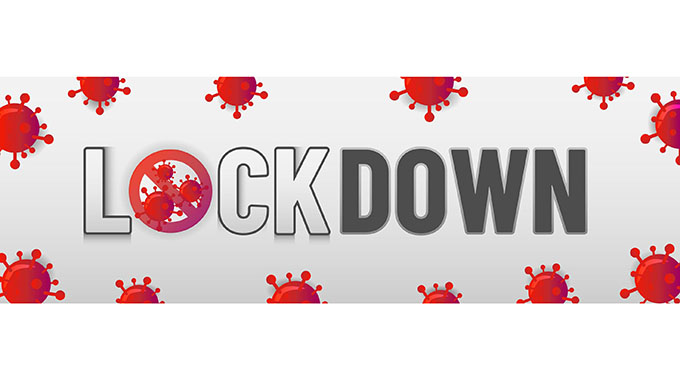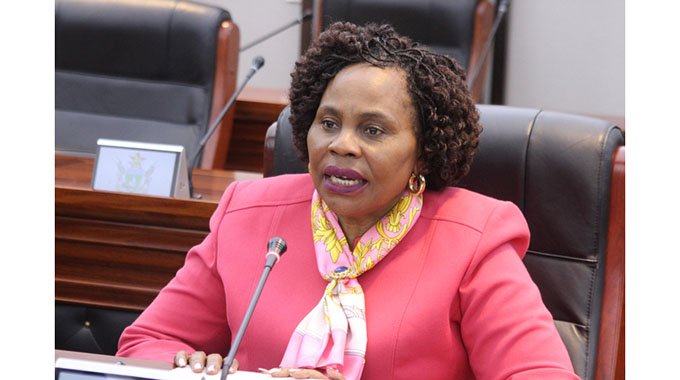EDITORIAL COMMENT: Tighter lockdown result of indiscipline

The further intensification of the lockdown this week, largely keeping everyone at home at night, stopping people moving from town-to-town and de-congesting most workplaces, did not come as a surprise considering the rising infection rates as what amounts to a third wave of Covid-19 infection crept down and across from Mashonaland West.
The earlier intensification, the banning of social and religious gatherings and the localised tighter curfews and movement bans in four districts, had helped but too many people were ignoring these extra measures.
Essential workers having to travel at night noted that the curfew was certainly not being followed with large numbers of cars still on the roads, far different from those nights when a curfew was being followed, and the objections made by many stopped at late night-roadblocks illustrated the attitude that everything was “almost normal”.
Even language tends to miss the point. Zimbabwe has been under lockdown since the end of March last year. The only variation is the degree of lockdown at any particular point, but there is a tendency for people to talk about any relaxation of lockdown provisions as “lifting”.
If everyone continued to follow the provisions in place, then intensifications would be less necessary.
Generally speaking, the main thrust of Government measures has been to keep the economy functioning as fully as possible, allowing almost everyone to continue earning their living, while barring all other contact and trying to isolate nodes and hotspots of infection.
This makes sense for two good reasons. First of all we do need to have a functioning economy. But secondly most businesses are ready to enforce lockdown provisions of masking, social distancing and sanitising and on the public streets most people are prepared to follow the basic rules of masking and the like.
The biggest dangers of infection come in private life. Many people are reluctant to forgo all social contact outside their immediate household, many people are reluctant to skip travel for family gatherings, including funerals, or for complex business deals that require a trip.
And as can be seen, even in daylight, some people seem unable to enjoy a drink without sitting with others. The problem with a lot of this social contact is that most people tend to assume that people they know are not infected and so there is no need for the precautions they take when they are dealing with total strangers in shops or on the streets.
Masks come off and as a gathering becomes more social many of the social distancing precautions fall away. Few people are willing to miss a funeral of a close relative, even if that funeral is on the other side of the country, and a lot of people feel they need to travel for other reasons.
This is the major reason for an enforced curfew and intercity travel ban. While there are complaints that the police do not enforce the daytime restrictions absolutely rigidly, most people do follow the rules if only because a police officer can see them maskless a block away and they do not want to take a chance, and in any case during the day they are usually earning their living and having to obey the rules that most businesses enforce.
And police do move in when they see groups of people flagrantly breaching the rules.
At night enforcement is obviously more difficult. For a start public pressure and police enforcement of masking and social distancing is difficult, since you have to be up close to see breaches.
Then most contact after hours is social, and as we have noted people tend, wrongly, to be far more relaxed in a social environment. Zimbabwe has not followed the South African lead of closing bottle stores and banning liquor sales, but does expect people wanting to enjoy a drink to buy their bottle and take it home, and has imposed rules to try and enforce this.
So far, Zimbabwe has done well in its efforts to contain Covid-19. Yes we have had close to 1 800 deaths and will probably go over 2 000 with this third wave, but compared to most with our risks, and even in our own region, we are doing well, largely because the Government steps in early in any wave and takes effective measures before infections go out of control.
Even the present wave, originating in the north of the country, is receding as a result of the localised lockdowns. While infection rates are still bad in Mashonaland West they are falling now, but those same effective measures were needed in the rest of Zimbabwe because too many people took a chance.
The second thrust of the present intensification is get our national vaccination programme back on track. While we were doing well the number of first vaccinations was falling fast for a good part of last month.
The supply chain is now more secure with adequate stocks arriving regularly, and the health authorities tell us they are fixing some of the other logistical problems.
The decision to give immediate priority to those manning the depots where farmers deliver their crops, the major markets, the border towns and the hotspots that have appeared makes sense.
Vaccination does cut chains of infection sharply and in the early days of a national programme, and we are still in the early days despite giving more than 1,33 million jabs, protecting the people at the centre of potential nodes of infection gives the greatest benefit quickly.
But with the supplies now assured, thanks to the two Chinese suppliers being ready to meet our orders, we really need to roughly double our vaccination rate.
Most people are willing to come forward, although they like to get it over quickly without long queues and without travelling far, if the responses from market vendors is anything to go by.
So the logistics should include an element of assigning groups each day and having teams in vaccination centres close to where those groups are located. There are obviously going to be hold-outs. The fact that 20 percent of the public medical sector have yet to line up despite being at the top of the priority list and working at the centres, is worrying.
For some it is something they will do “tomorrow”, but others might have other reasons and it would be useful to know these and deal with them.
While most religious leaders are leading by example, some seem reluctant and that needs to be overcome, as we have largely done in the past with the child vaccination programmes.
Social media drivel now seems to be largely ignored so the hold-outs will need concerns addressed, and incentives put in place as the programme continues.
The Government decision to no longer compensate unvaccinated medical staff who fall sick is the sort of negative incentive that is required, as are suggestions that at some stage people in particularly vulnerable places must be vaccinated if they are to continue working there.
Zimbabwe’s battle against Covid-19 is not going to end soon. We still have a long haul. None of us like the restrictions but we all see the need, and must accept that they apply to us as well as to “them”.
But if we all follow the rules medical experts lay down, we will beat this pandemic.









Comments